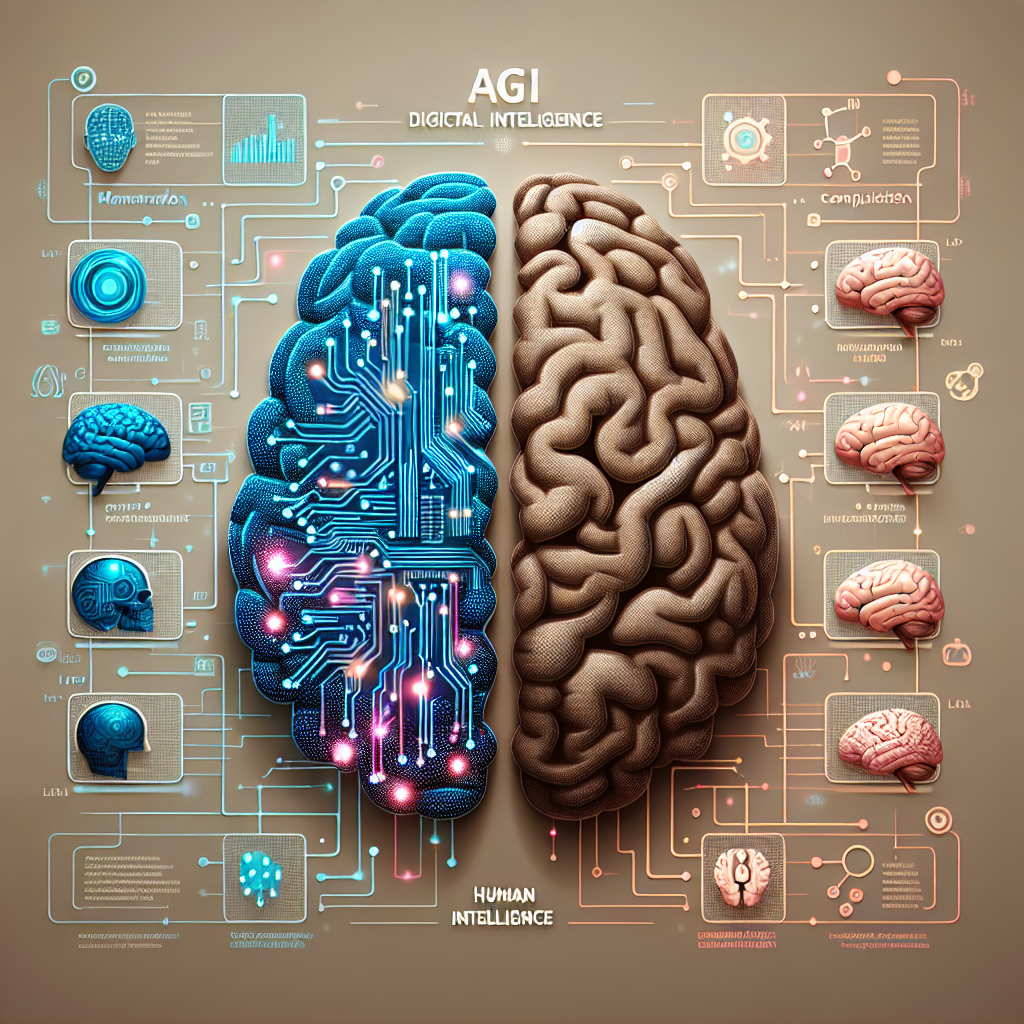Artificial General Intelligence (AGI) has long been a topic of fascination and speculation in the field of artificial intelligence. AGI refers to a form of intelligence that is capable of understanding and learning any intellectual task that a human being can. This raises the question: how does AGI compare to human intelligence? In this article, we will explore the differences and similarities between AGI and human intelligence, as well as address some frequently asked questions on the topic.
Differences Between AGI and Human Intelligence
One of the key differences between AGI and human intelligence lies in their origins. Human intelligence is the result of millions of years of evolution, shaped by natural selection and the complex interactions of genes and environment. AGI, on the other hand, is created by humans through the programming and training of artificial neural networks and algorithms.
Another difference is in the way that AGI and human intelligence process information. Human intelligence is highly adaptive and can make use of a wide range of sensory inputs, emotions, memories, and reasoning to solve complex problems. AGI, on the other hand, relies on algorithms and data processing to perform tasks, which limits its ability to adapt to new situations or think creatively.
Furthermore, human intelligence is inherently tied to consciousness and self-awareness, while AGI lacks these qualities. Human beings have a sense of self, emotions, beliefs, and desires that shape their decision-making and behavior, whereas AGI is a purely computational system that lacks subjective experience.
Similarities Between AGI and Human Intelligence
Despite these differences, there are also some similarities between AGI and human intelligence. Both AGI and human intelligence are capable of learning from experience and improving their performance over time. AGI systems can be trained on large datasets to recognize patterns and make predictions, similar to the way humans learn from their experiences.
Additionally, both AGI and human intelligence can perform a wide range of cognitive tasks, such as language processing, problem-solving, and decision-making. AGI systems have been shown to excel at tasks such as image recognition, natural language processing, and game playing, demonstrating a level of intelligence that rivals human capabilities in these domains.
Furthermore, both AGI and human intelligence have the potential to be creative and innovative. Human beings are capable of generating new ideas, artworks, and inventions through their imagination and problem-solving skills, while AGI systems can be programmed to generate novel solutions to complex problems through algorithms and neural networks.
FAQs
Q: Can AGI ever surpass human intelligence?
A: While AGI has the potential to match or even surpass human intelligence in certain tasks, it is unlikely to fully replicate the complexity and richness of human intelligence in the near future. Human intelligence is shaped by a combination of biological, psychological, social, and cultural factors that are difficult to replicate in artificial systems.
Q: Will AGI pose a threat to humanity?
A: The potential risks of AGI have been a subject of debate among experts in the field of artificial intelligence. While AGI systems have the potential to bring about significant benefits in various domains, such as healthcare, finance, and transportation, there are also concerns about the ethical implications of creating machines with human-like intelligence and decision-making capabilities.
Q: How can we ensure the safe development of AGI?
A: To ensure the safe development of AGI, it is important for researchers, policymakers, and industry stakeholders to collaborate on establishing ethical guidelines and regulatory frameworks for the responsible use of artificial intelligence. This includes addressing issues such as bias, transparency, privacy, and accountability in AI systems.
In conclusion, the differences and similarities between AGI and human intelligence highlight the unique capabilities and limitations of both systems. While AGI has the potential to match or even surpass human intelligence in certain tasks, it is unlikely to fully replicate the complexity and richness of human intelligence in the near future. By understanding the differences and similarities between AGI and human intelligence, we can better appreciate the potential of artificial intelligence to transform society and improve human well-being.

